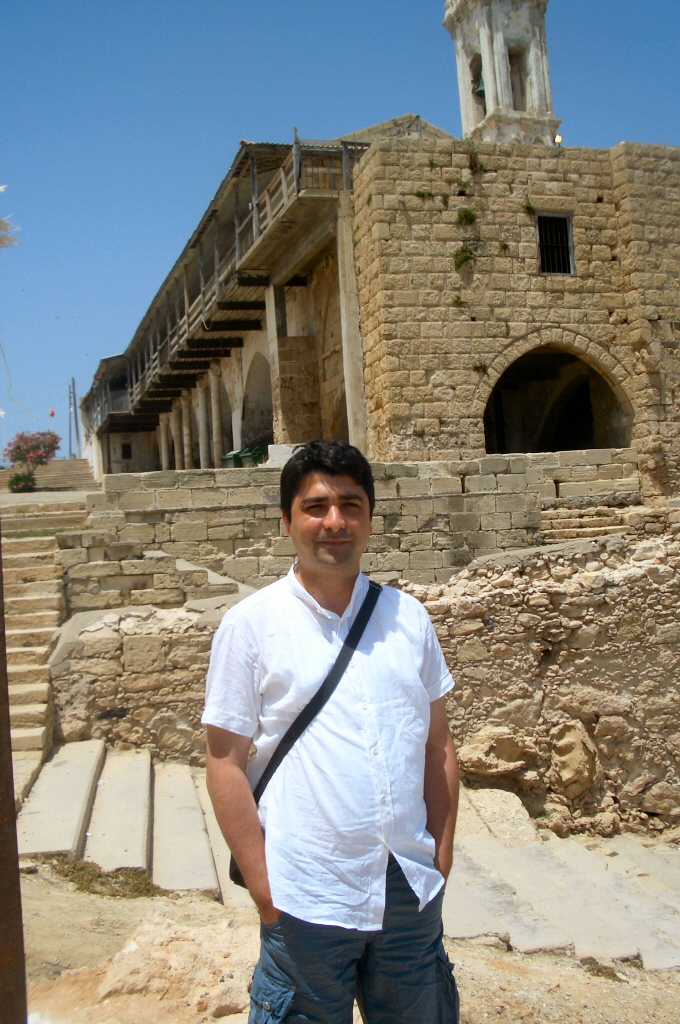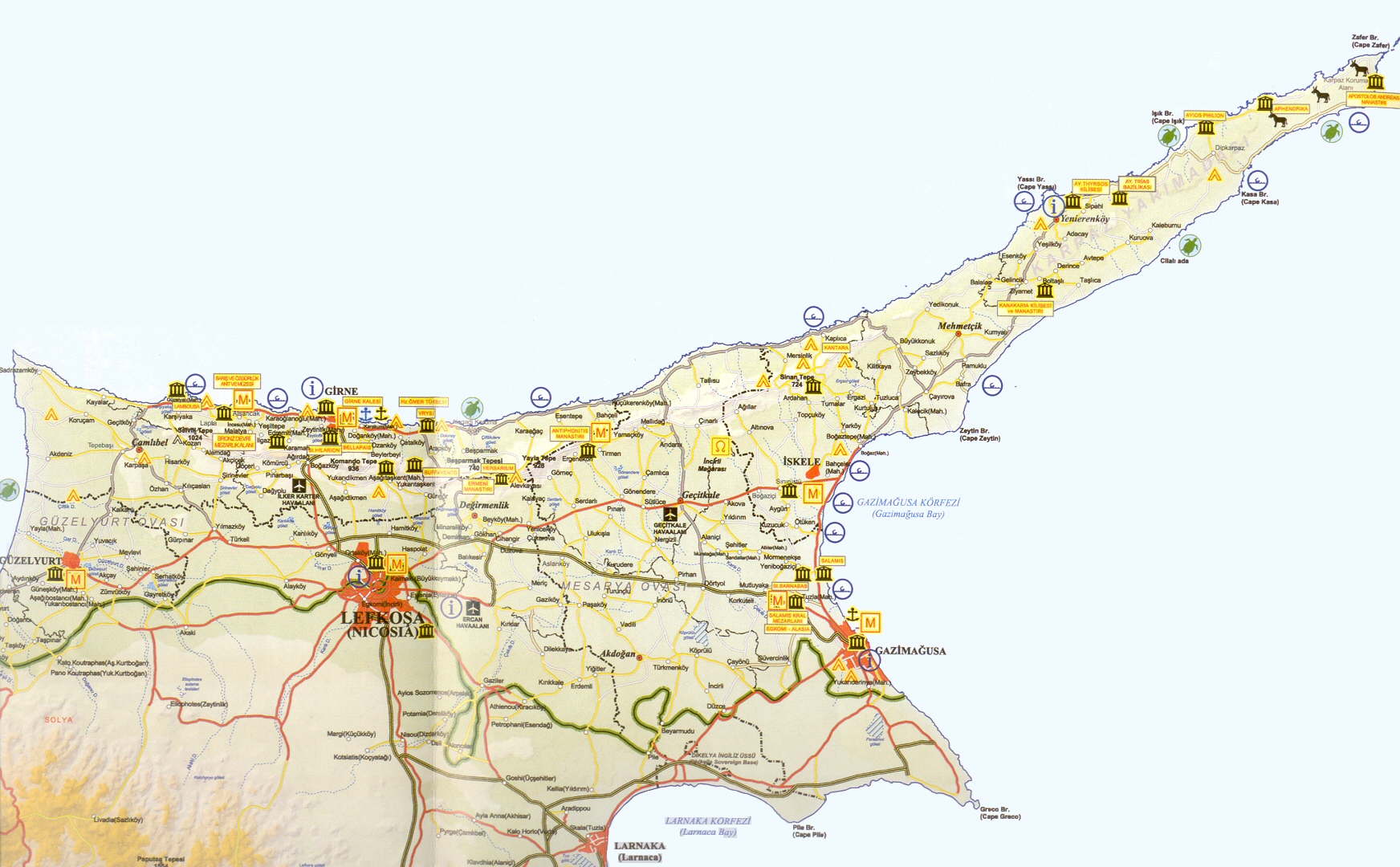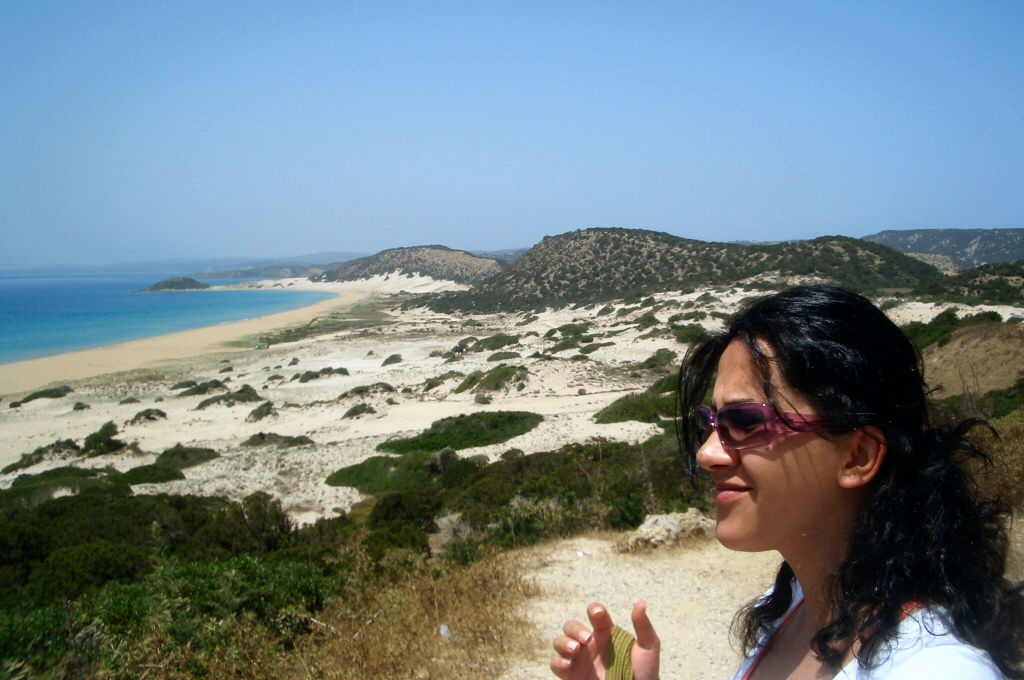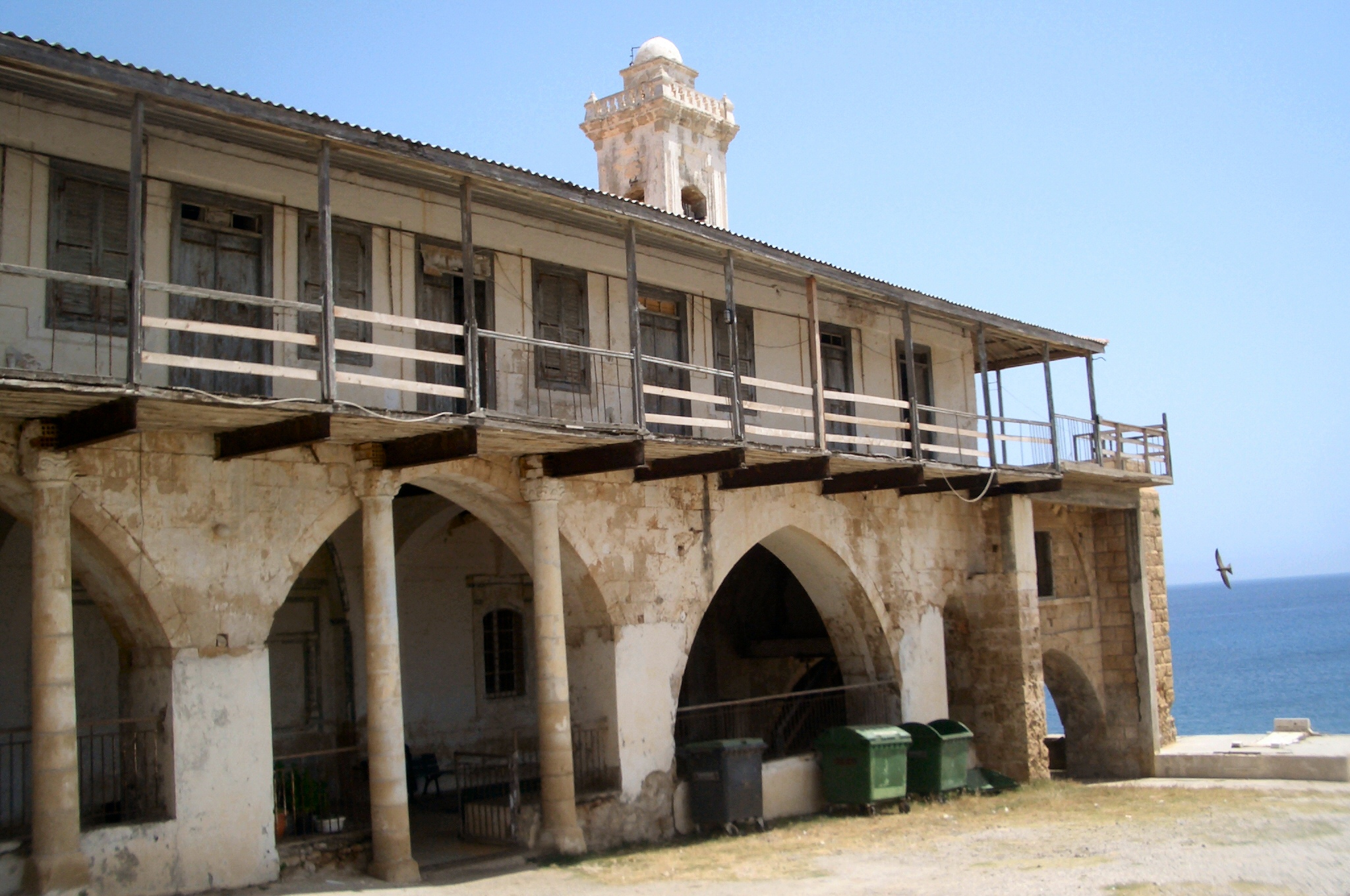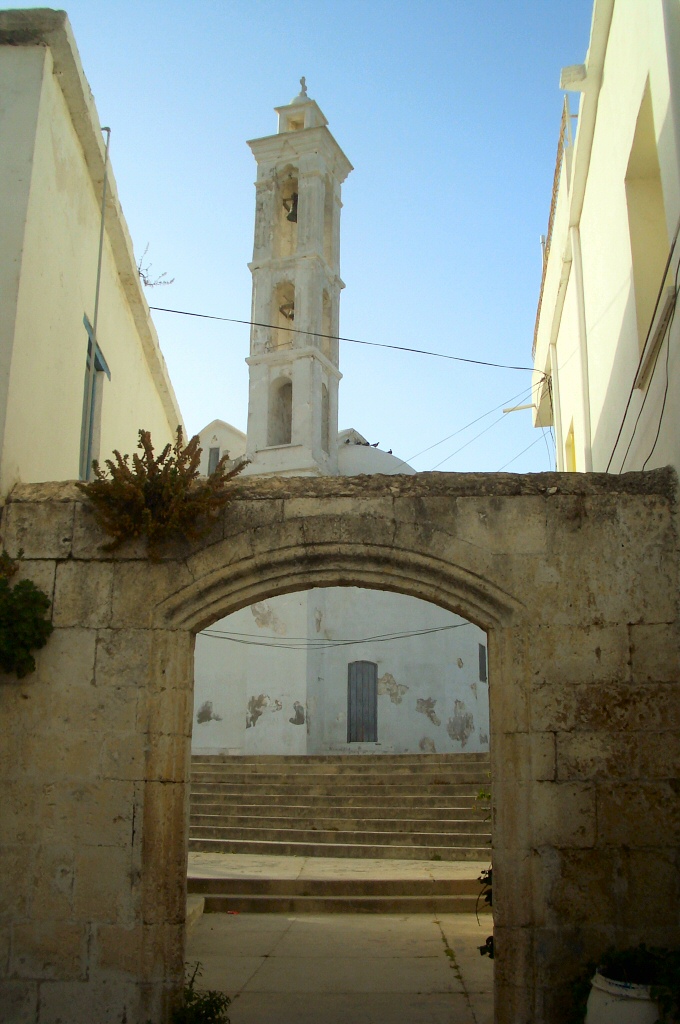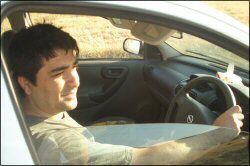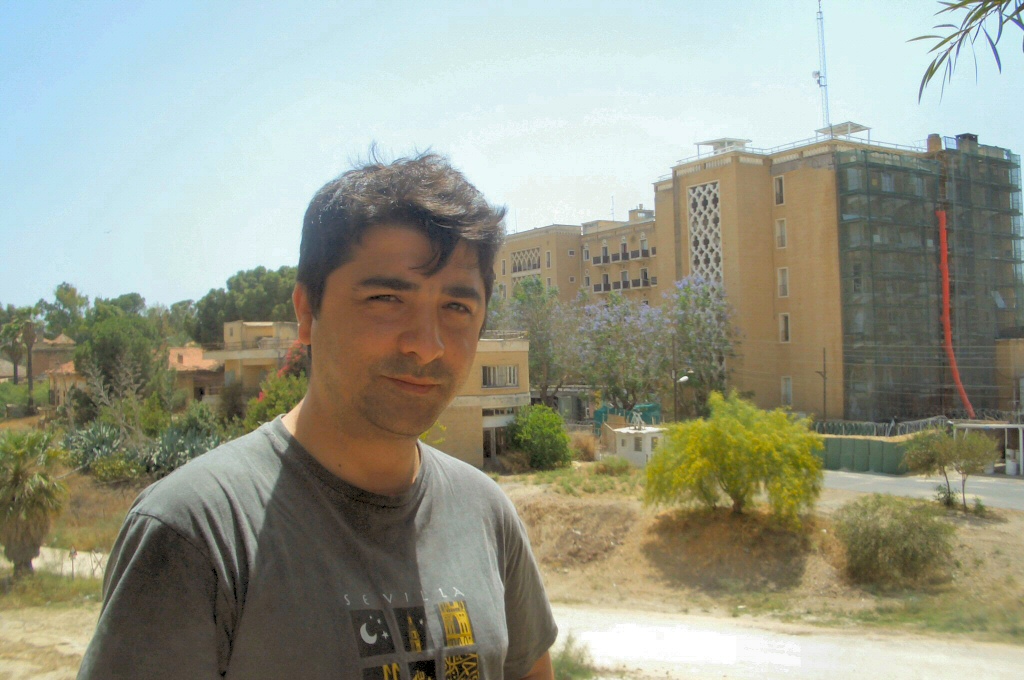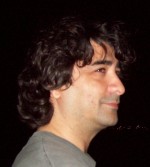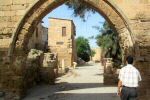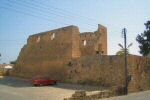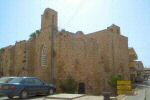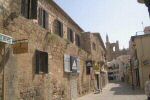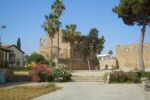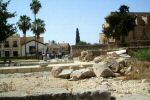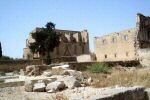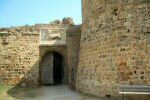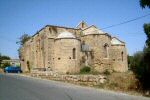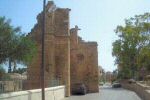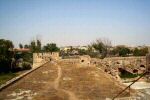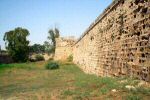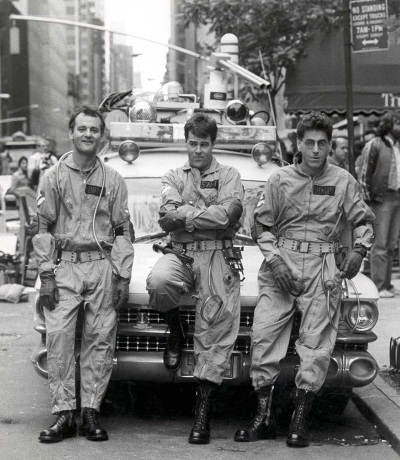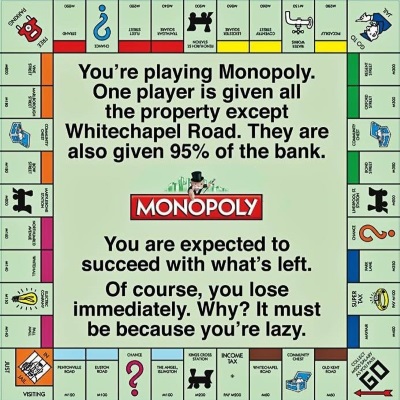Cyprus Divided Forever
Impressions from Northern Cyprus
In June 2006, Zeynep and I visited Cyprus. It was our first time in the island. I was born in 1971, so my entire life has passed waiting for the Cyprus problem to be solved.
I have lived my first 25 year believing the official point of view. And then I've introduced myself fearlessly to the Greek view. I've been in Greece several times and listened and read their point of view.
Cyprus problem is one of the most complicated conflicts of the world (I think in top five, with Israel-Palestine, Kashmir and so). I don't have any idea how this conflict would be resolved, and after this visit it seems more improbable to me.
This is my reviews after this first visit. After 2004, the borders are open for citizens of the Republic of Cyprus. The Turkish citizens are not allowed to the south, including us. So this review is only about the north - Turkish Republic of North Cyprus.
Because of the British colonial period, Cyprus is quite different from Turkey and Greece. You can feel it at every aspects of daily life.
Apostolos Andreas Monastery
in Rizokarpaso, Karpass Peninsula
Our Route
Map of North Cyprus
Mostly Turkish, some English text
In our 5 day travel, we went to Famagusta (Mogusa), Kyrenia (Girne), Rizokarpaso (Karpaz) and Nicosia (Lefkosa).
After we landed on Ercan Airport (near Nicosia), we went to our hotel Salamis Palace near Famagusta. After passing two days at Famagusta and vicinity, we passed to Kyrenia.
In Kyrenia, we stayed at Dome Hotel. From Kyrenia, we rented a car and we went to Nicosia and Rizokarpaso with it.
Also there were lots to see that we left behind. Maybe the next time.
Famagusta, a dream place
The first place we visited was Famagusta (Gazi Magusa in Turkish) .
Famagusta is composed of an old city surrounded by walls and the new city outside. The old city of Famagusta deserves special attention. I can compare this city with Rhodes or Jerusalem.
There are dozens of old churches inside the walls. The churches represents the various religious groups of Crusade Era. Even there's a Nestorian church, which is regarded marginally heretical today.
The city was used as a military and strategic base for crusades and after Jerusalem is taken back by Muslims, the places like Cyprus (Rhodes, Malta, Halicarnassus etc.) was secure havens for the knights.
Famagusta is full of Latin period churches.
Best of all Cyprus (north and south)
A quite café in Famagusta
with a nice "old city" view on background
If there was no blockade to North Cyprus, this town would be bustling with tourists from all around the world. It was so amazing. There was a historical monument, an old church or a mosque at every corner of the old town Famagusta. The city walls also are in good condition.
The economic life of the city largely depends on the East Mediterranean University. The students of the university come from Turkey and some middle east countries.
Tourist activity is very low. Though there is a significant increase after the borders are opened in 2004. It was Sunday when we were in Famagusta and we met some tourist buses from Greek part.
Nature, still untouched...
Zeynep viewing the magnificent scenery
Golden Beach in Rizokarpaso.
I had imagined Cyprus as a semi-desert dry place without trees. It's true for some parts. But especially Rizokarpaso is an amazing place with green forests and beautiful beaches. Almost an untouched natural beauty.
While driving from Famagusta to Rizokarpaso , especially starting from the village Mehmetcik, you pass through forests, farms and quite beaches.
The village Rizokarpaso is nearly at the end point of the peninsula.
Social life, is something changing?
Apostolos Andreas monastery
one of main visiting destinations of Greek Cypriots
All around Cyprus, there are empty churches left behind by the Greeks. They are deteriorating day-by-day. It reminded me the process of deterioration of the churches in Turkey. After the Greeks had left in 1922, the churches was still there and in good condition in 1950s and 60s.
Even in 80s and 90s, you could still encounter Greek churches in some places. But now it's nearly impossible to spot a Greek church in Anatolia (unless it's converted to a mosque or a museum).
This is why I'm so pessimistic about the future of Cyprus. I see the same story in Cyprus as we experienced after the war and population exchange.
After the borders are opened, an unbelievable tourist activity is observed. Turkish Cypriots said that, at first days, they couldn't even wander on the streets or go to shopping because of the Greek Cypriots visiting north. Now the traffic slowed down but still there's great tourist activity.
Churches in North Cyprus
is in the process of deterioration
The Greeks come in great numbers. The visit their old neighborhood, their old churches with high nostalgia. Of course, they enjoy spending lots of money in casinos, restaurants and shops. The Turks also go to the Greek side, but for different purposes; working for example. There's little job opportunities in Northern Cyprus and some people prefer jobs in South.
What about the young generation? It's a bit complicated issue. The young Greeks do not visit north. They don't have any nostalgic reasons and they don't have good feelings about Turks. It's quite reasonable after years of school and mass media propaganda. I know its effects at first hand encounter (on myself).
But after 2004, some inter-cultural activities started. The new generations started to know each other and discovered that they are not so bad people. But these actions are still so feeble that it will take long years to give any result - if it will at first place.
There's an immense construction activity all around the island. Especially in Kyrenia. Generally, people from England prefer to own real estate. Although it's a controversial issue, Englishmen continue to buy and build real estate.
If you plan to visit Cyprus beware ...
In Cyprus, traffic runs from left
It was very hard to get used to it
As I mentioned, I've never been in South Cyprus, so these advices are only bound with North Cyprus. But as far as I know, the same things apply to the south.
First of all, there's nearly no means of mass transportation inside the island. No trains at all, very few buses (only among major towns) and no domestic sea transportation.
Foreigners cannot pass to North Cyprus from South. The gates are open for Greek and Turkish Cypriots. So the only way to visit North Cyprus is going there from Turkey.
The only logical thing is to rent a car (because taxi fares are very high). There's another major problem there, unless you're not British. The traffic runs from left. This was a disaster for me when we rented the car and traveled to Rizokarpaso.
Another important detail is the electric plug. They use English type 3-pin mains plugs. If you have a notebook or a device to be charged with you, you should carry the appropriate plug.
Divided Forever
I was very hopeful before the 2004 referendum. I had never been on the island but I wanted the solution as much as a Cypriot.
I was born in 1971 and I've lived all my life with Cyprus problem. It was an unbelievable event for me, and it was easy to dream more. A peaceful country that has no enemies and no hostility. But it didn't happen. Dream was over.
Greek side has their own view of course. For all these years, either Turkish, or Greek side made many mistakes. I can accept that Turkish side made even more mistakes. But the last mistake, done by the Greek side is the greatest of all. In my opinion, they should have accepted the Annan's Plan.
I call this "a mistake" not as it's harmful to Turkish Cypriots. But it triggered the process of permanent separation. This process may be broken, but the time passes and every minute counts in this process.
The Greeks have their own plans to reunite the island. These plans are based on "pressure upon Turkey via EU (European Union) membership process".
I think, Greeks overrate the desire and the probability of EU membership of Turkey. "What will happen, if an ultra-nationalist government takes power in Turkey and suspends all EU process?" is a good question to contemplate.
I sometimes think that maybe the political power of Greek Cyprus does not want reunification anymore. In many ways, they were not different from Denktas, maybe they had better P.R. only.
Anyway, we left Cyprus feeling pity and sympathy to the people in Cyprus (both Greek and Turkish), because I don't think they will find peace in near future.
Ledra Palace
at the borders of separated Cyprus

